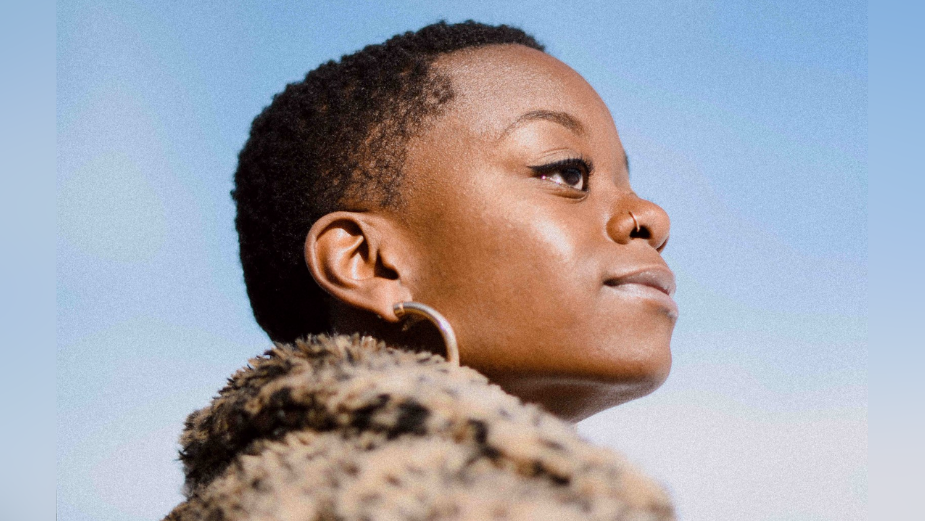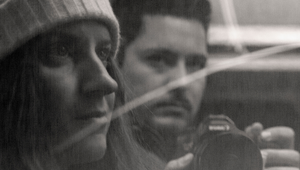
The Directors: Crystal Kayiza

Raised in Oklahoma by Ugandan immigrants, Crystal Kayiza took a documentary film class in high school and realised early on that she wanted to do nonfiction storytelling. After graduating from Ithaca College in 2015 with a degree in Documentary Studies and Production, Crystal spent two years at the ACLU working on criminal justice and racial justice issues. She’s now a Brooklyn-based documentary filmmaker whose work focuses on nuanced storytelling about the African Diaspora.
She received a Heartland Emmy Award for her film All That Remains, which profiles Boley, Oklahoma, one of the nation’s last all-Black towns. Her short documentary Edgecombe, which examines how trauma repeats and reinvents itself in a rural Black community in North Carolina, was an official selection of the 2019 Sundance Film Festival. Her following documentary, See You Next Time, was again selected in 2020.
Crystal was named one of the 25 New Faces of Independent Film in Filmmaker Magazine, and in the last few years she has received fellowships from Sundance and the Jacob Burns Film Center.
Name: Crystal Kayiza
Location: Brooklyn, NY
Repped by: Little Minx
Awards: 2021 Creative Capital Award, 2020, Tribeca Through Her Lens Chanel Women's Filmmaker Winner, 2020 DOC NYC 40 under 40, 2018 Filmmaker Magazine “25 New Faces of Independent Film”, 2019 Shoot New Directors Showcase
LBB> What elements of a script sets one apart from the other and what sort of scripts get you excited to shoot them?
Crystal> I’m drawn to work that is character driven. Projects that offer an opportunity to explore a world in an intimate and personal way are exciting to me.
LBB> How do you approach creating a treatment for a spot?
Crystal> The treatment writing process, across all formats, is where a lot of the world building happens. I approach a lot of my work thematically first and then take those broad strokes and give them context by building a visual approach and feel for a project.
LBB> For you, what is the most important working relationship for a director to have with another person in making an ad? And why?
Crystal> The most important working relationship depends on the day and the needs of the project but the throughline for me is the producer. There is a lot of translating and unspoken understandings between a director and producer and I think having someone you trust is one of the most important parts of any project.
LBB> What type of work are you most passionate about - is there a particular genre or subject matter or style you are most drawn to?
Crystal> My background is in non-fiction filmmaking so my work largely lives between the realities of a space or community and trying to reimagine the ways to tell a story. I’m really interested in actively dispelling the distinction between non-fiction and narrative storytelling in my approach.
LBB> What’s the craziest problem you’ve come across in the course of a production – and how did you solve it?
Crystal> There are a lot of challenges in any production but I don’t think anything has compared to this time. COVID has presented a lot of very difficult situations but I’ve tried to use this time to take stock and do an audit of my process.
LBB> How do you strike the balance between being open/collaborative with the agency and brand client while also protecting the idea?
Crystal> I believe with any project it’s necessary to protect my intention. The nature of this medium is collaborative and it’s my favorite part about this work. I also have to trust my instincts and gut feelings. So I build relationships with people who trust and understand the idea and are partners in making it happen.
LBB> What are your thoughts on opening up the production world to a more diverse pool of talent? Are you open to mentoring and apprenticeships on set?
Crystal> It’s been great to see folks bringing people on set to mentor. Especially heads of departments. A lot of the efforts and opportunities I’ve seen are being led by folks of colour, particularly women of color. And I think that's an important detail. A lot of the labor necessary to make this industry more inclusive falls on people that continue to be excluded from certain opportunities. Things “opening” means that something was closed. So it’s always an important time to interrogate those systems and gatekeepers.
LBB> How do you feel the pandemic is going to influence the way you work into the longer term? Have you picked up new habits that you feel will stick around for a long time?
Crystal> I’ve developed more patience with myself and the pace of my work during this time. The pandemic forced a moment of pause and reflection. A pause in productivity used to feel inconvenient but now it feels necessary.
LBB> Your work is now presented in so many different formats - to what extent do you keep each in mind while you're working (and, equally, to what degree is it possible to do so)?
Crystal> There’s such a range of platforms now. I try to think creatively about how and where I can best reach my intended audience. It’s important to me that things are accessible and at the same time there’s so much content that it’s easy for things to get lost. Not everything is meant to be viewed on a phone. I also know that it’s not always something I can control. What I can control is what the work is trying to say and make it resonate, regardless of the format.
LBB> Which pieces of work do you feel really show off what you do best – and why?
It was really special to meet the business owners featured in the Facebook spot. My goal was to make it feel intimate while pushing the traditional visual language used to tell stories about these spaces.
In See You Next Time, I was really interested in exploring and representing what was unsaid. And that interest manifested in the visual approach and reimagining the perspectives through movement.
Non-fiction filmmaking is where this all started for me. I think non-fiction films can feel like poetry and that’s what I strived for with Edgecombe.
In a lot of ways, Why We Stay, anchored and cultivated my interest in community storytelling. Something I carry into all of my work now.













